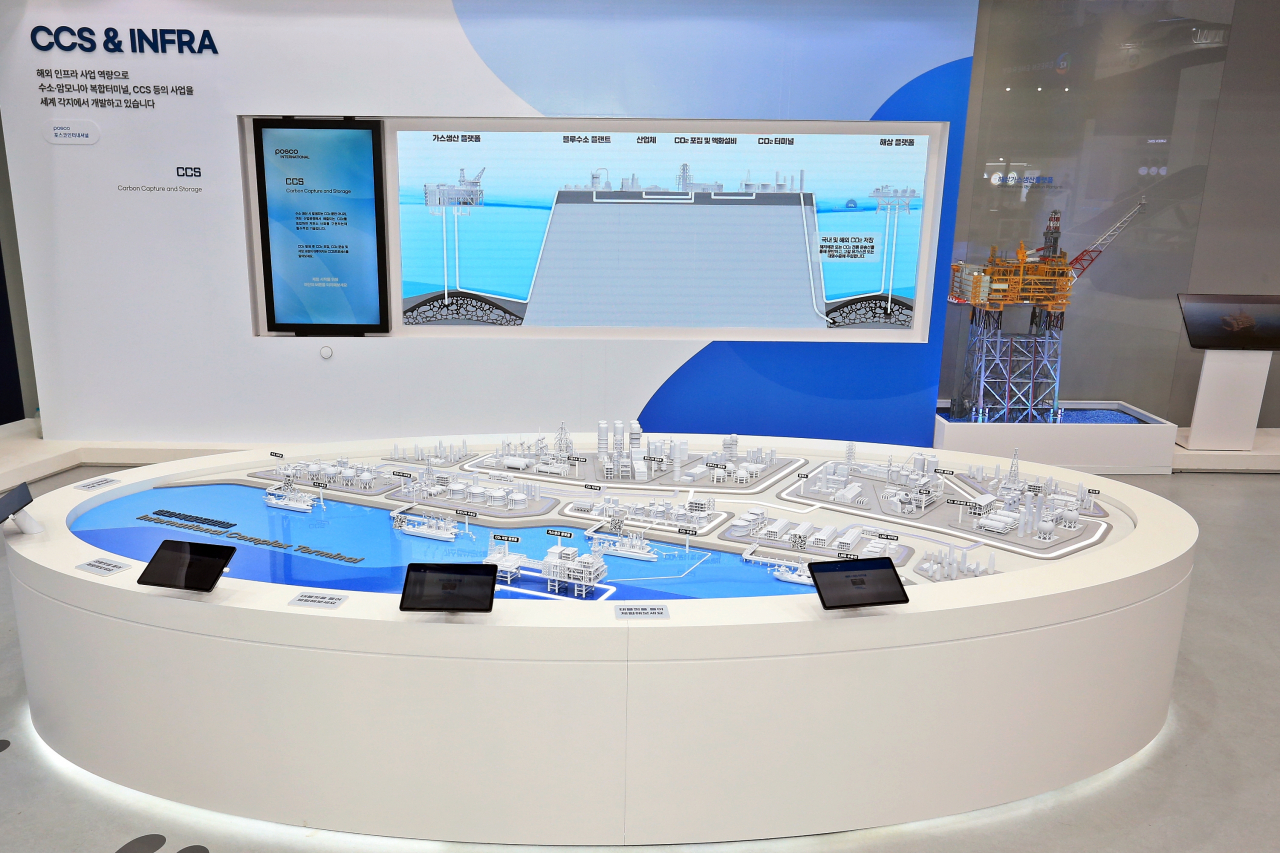 |
Posco International's carbon capture storage business model (Posco International) |
South Korean commodities trader Posco International announced Tuesday that it will foster the carbon capture and storage business by establishing a new commercialization team.
CCS is a technology that collects and stores carbon dioxide emitted from industries and permanently isolates them from the atmosphere. The collected carbon dioxide is stored underground and is used in artificial seismic wave exploration, exploration drilling and carbon dioxide injection to determine a suitable stratum structure.
This is similar to Posco International’s previous resource development method, indicating that the company can fully utilize its experience and capabilities accumulated through offshore gas field development since the 1990s.
As the only company in Korea that connects all stages of the liquefied natural gas value chain, Posco International has sufficient technology and manpower to be utilized in the exploration of natural gas reserves, gas transportation and gas field operation, the company said.
Posco International is analyzing the economic feasibility of the CCS business by utilizing depleted offshore gas fields with global energy companies in Australia. The company is also evaluating technology and conducting an economic analysis with Australia’s Senex Energy.
The company is also developing a business model in Malaysia that stores domestically collected carbon dioxide and marine exhaust gas in salt water fields with oil companies Petronas, Petros and Posco Holdings.
"We will lay the foundation for Posco Group's carbon neutrality through the commercialization of CCS," a Posco International official said, adding, "We will foster eco-friendly energy businesses to play a major role in achieving Korea's contributions by 2050.”
Meanwhile, Posco International is also promoting hydrogen co-firing, an eco-friendly technology. Hydrogen co-firing generates electricity by mixing and burning hydrogen with LNG from thermal power plants. The company aims to operate hydrogen-only power plants by 2050 by gradually increasing the hydrogen ratio of its power plants.







![[Today’s K-pop] Blackpink’s Jennie, Lisa invited to Coachella as solo acts](http://res.heraldm.com/phpwas/restmb_idxmake.php?idx=644&simg=/content/image/2024/11/21/20241121050099_0.jpg)